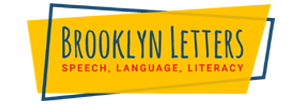Is It Important To Teach Roots?
by: Kenn Apel, PhD
Is it important to teach roots? Should we be teaching roots as part of (or perhaps separate from) a morphological awareness curriculum/intervention?

Morphological awareness is the ability to think about and manipulate morphemes. Morphemes are the smallest units of meaning in one’s language. Awareness of a morpheme typically occurs after one has been using a morpheme meaningfully in spoken language (i.e., use precedes awareness).
Many argue that we should be teaching (helping students become morphologically aware of) roots because a great deal of English is based on or comes from Greek and Latin roots. The idea is that knowledge of those roots will help students recognize and develop hypotheses re: the meaning of new words that contain the same roots. However:
- we have no research evidence that teaching roots improves literacy. Any published study that included teaching roots involved other morphological awareness activities that were not root-based (e.g., helping students become aware of base words and affixes).
- unless one is taught to think about roots, roots are not morphemes. They do not hold meaning for most/all individuals who speak or write words that contain them. The exception is that some roots have now become base words (e.g., cyber, hyper, photo)
- when collecting spoken language samples, researchers and practitioners never count as morphemes
- unlike base words and affixes, children who are developing spoken language early on do not “play around” with roots; they do play around with base words and affixes they know (e.g., my son, during the preschool years, talked about how his cars went “radly” when they went fast).
- when children start becoming morphologically aware, it is on the morphemes they’ve been using in conversational speech (base words, affixes). They have not “dived deep” into roots, so they are not aware of them. By not knowing roots (knowing their meaning, treating them as a morpheme), they cannot be morphologically aware of them. They first would need to be taught.
- for roots that typically are targeted in curricula that teach roots, it seems they are not even known by the adults teaching them. Teaching students the meaning of specific roots does not always lead to the accepted meaning of words that contain them. For example,
a. The root <spect> (spec, spic) means to see, watch, observe. For most adults (and perhaps some older students), it is not difficult to recognize that root and its typical meaning in some words containing it (e.g., spectacles, spectator, inspect). It is much more difficult to understand how that root supports the meaning of other words containing it (e.g., respect, species, aspect). Using knowledge/awareness of the root meaning along with the attached affix(es) does not successfully lead to understanding of the commonly accepted meaning of the word. For example, using a root-based approach to understanding words, a word like ‘respect’ (re<spect>) would suggest that ‘respect’ means to see again. However, for most students and adults, respect means a feeling of deep admiration for someone or something. It is a challenge then to understand how that word (respect) comes from or relates to see, watch, observe. Finally, there are words that contain that root spelling that are not from that root (spice, speck, specter). Using a root-based strategy to extract meaning would send a student/adult way down the wrong path. For example, how is one to know that specter does not come from <spec>, especially given it seems to have the ‘er’ suffix on it?

Is it important to teach roots? My answer to my question: No, we should not be teaching roots, at least not until we have some evidence that doing so improves literacy abilities.
What might we do at this point in time?
- It seems that adults and students do not always see the relation among words that contain the same root (e.g., inspect and respect). Instead, they see the relation between, for example, “relatives” of one set of root-related words (e.g., inspect, inspection, reinspect) and relatives of another set of root-related words (e.g., respect, respectful, respectable). In these cases, it seems more likely that success in helping students apply their morphological awareness to read and write new words would occur by using base words and their relatives rather than all words sharing the same root.
- Conduct investigations which target root-based interventions solely and determine whether such interventions lead to improvements in literacy skills.
Kenn Apel, PhD of SPELLTalk decided to write this chain of thoughts because of great conversations he have had with Sue Cessna, MS, CCC-SLP, a language-literacy specialist in Lander, Wyoming.
Craig Selinger
Latest posts by Craig Selinger (see all)
- NYC Middle School Transition Support Group - April 7, 2024
- Understanding Toddler Neurodevelopmental Evaluation - April 3, 2024
- Rare Diseases in New York City - February 29, 2024

